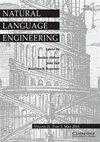An unsupervised perplexity-based method for boilerplate removal
IF 1.9
3区 计算机科学
Q3 COMPUTER SCIENCE, ARTIFICIAL INTELLIGENCE
引用次数: 0
Abstract
The availability of large web-based corpora has led to significant advances in a wide range of technologies, including massive retrieval systems or deep neural networks. However, leveraging this data is challenging, since web content is plagued by the so-called boilerplate: ads, incomplete or noisy text and rests of the navigation structure, such as menus or navigation bars. In this work, we present a novel and efficient approach to extract useful and well-formed content from web-scraped data. Our approach takes advantage of Language Models and their implicit knowledge about correctly formed text, and we demonstrate here that perplexity is a valuable artefact that can contribute in terms of effectiveness and efficiency. As a matter of fact, the removal of noisy parts leads to lighter AI or search solutions that are effective and entail important reductions in resources spent. We exemplify here the usefulness of our method with two downstream tasks, search and classification, and a cleaning task. We also provide a Python package with pre-trained models and a web demo demonstrating the capabilities of our approach.基于无监督困惑度的样本板去除方法
大型基于网络的语料库的可用性导致了一系列技术的重大进步,包括大规模检索系统或深度神经网络。然而,利用这些数据是具有挑战性的,因为网络内容受到所谓样板的困扰:广告、不完整或嘈杂的文本以及导航结构的其余部分,如菜单或导航栏。在这项工作中,我们提出了一种新颖有效的方法,从网络抓取的数据中提取有用且格式良好的内容。我们的方法利用了语言模型及其对正确形成的文本的隐含知识,我们在这里证明了困惑是一种有价值的人工制品,可以在有效性和效率方面做出贡献。事实上,去除有噪声的部分可以带来更轻的人工智能或搜索解决方案,这些解决方案是有效的,并大大减少了资源支出。我们在这里用两个下游任务,搜索和分类,以及一个清理任务来举例说明我们的方法的有用性。我们还提供了一个带有预训练模型的Python包和一个演示我们方法功能的网络演示。
本文章由计算机程序翻译,如有差异,请以英文原文为准。
求助全文
约1分钟内获得全文
求助全文
来源期刊

Natural Language Engineering
COMPUTER SCIENCE, ARTIFICIAL INTELLIGENCE-
CiteScore
5.90
自引率
12.00%
发文量
60
审稿时长
>12 weeks
期刊介绍:
Natural Language Engineering meets the needs of professionals and researchers working in all areas of computerised language processing, whether from the perspective of theoretical or descriptive linguistics, lexicology, computer science or engineering. Its aim is to bridge the gap between traditional computational linguistics research and the implementation of practical applications with potential real-world use. As well as publishing research articles on a broad range of topics - from text analysis, machine translation, information retrieval and speech analysis and generation to integrated systems and multi modal interfaces - it also publishes special issues on specific areas and technologies within these topics, an industry watch column and book reviews.
 求助内容:
求助内容: 应助结果提醒方式:
应助结果提醒方式:


